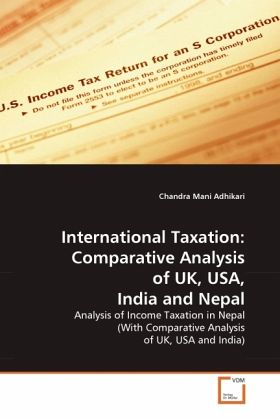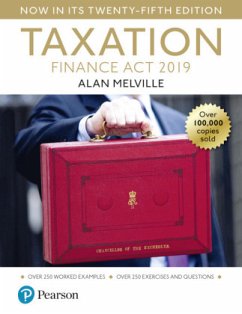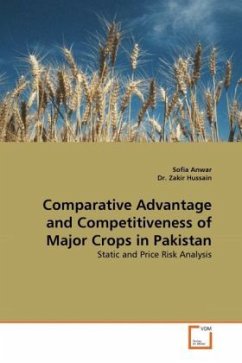
International Taxation: Comparative Analysis of UK, USA, India and Nepal
Analysis of Income Taxation in Nepal (With Comparative Analysis of UK, USA and India)
Versandkostenfrei!
Versandfertig in 6-10 Tagen
52,99 €
inkl. MwSt.

PAYBACK Punkte
26 °P sammeln!
The book is thorough analysis of Nepalese income tax policy, systems, administration and procedures. Fiscal policy derives its rationale and justification from the experience and goals of the society. The aspirations of the people may be expressed in terms of economic betterment, stability to provide all the basic minimum needs to the people, promoting social progress, and providing better standards of life. To this end, the most important objectives of tax policy are to make available for economic development, the maximum flows of human and material resources, consistent with current consumpt...
The book is thorough analysis of Nepalese income tax policy, systems, administration and procedures. Fiscal policy derives its rationale and justification from the experience and goals of the society. The aspirations of the people may be expressed in terms of economic betterment, stability to provide all the basic minimum needs to the people, promoting social progress, and providing better standards of life. To this end, the most important objectives of tax policy are to make available for economic development, the maximum flows of human and material resources, consistent with current consumption requirements, to maintain economic stability so as to cushion against the adverse impact of long term inflationary spiral and short term price movements and to minimise the existing inequalities in income, wealth and standard of living. These objectives are not basically different from the goals of economic efficiency, economic growth and optimal allocation of resource. The work of this book is focused to provide the ways to achieve these objectives of socio-economic justice and endeavors to review the income tax policies of the countries like USA, UK and India in reference to Nepal.












